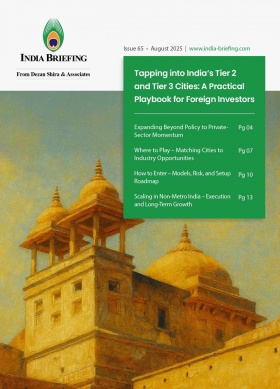Delhi Shops and Establishments Act: Conditions for Extended Business Hours
On August 7, 2025, the Government of the National Capital Territory (NCT) of Delhi issued a notification titled “Delhi Exemption 2025,” granting conditional relaxations to all shops and commercial establishments, except liquor outlets, from select provisions of the Delhi Shops and Establishments Act, 1954 (Delhi S&E Act).
The notification provides long-awaited operational flexibility for businesses in Delhi, particularly in the retail, e-commerce, technology services, and hospitality sectors, where round-the-clock operations are increasingly necessary. However, the exemption framework also reinforces the state government’s objective to safeguard worker rights, workplace safety, and gender inclusivity.
Facilitating Delhi’s 24×7 economy: Policy and compliance framework
The Delhi Exemption 2025 aligns with similar regulatory reforms introduced in other progressive state jurisdictions such as Karnataka, Maharashtra, and Haryana, aimed at facilitating a 24×7 business ecosystem. Delhi’s approach, however, stands out for its detailed compliance conditions and mandatory pre-approval process.
From a business policy standpoint, these measures support Delhi’s vision to attract greater service-sector investments and align its labor regime with contemporary commercial realities, especially in sectors like retail, IT-enabled services, and logistics, where extended working hours and gender-balanced participation are vital.
Also Read: Tamil Nadu Permits 24×7 Business Operations: What Employers Must Know
Key provisions and compliance obligations
The exemption relaxes three key provisions of the Delhi Shops and Establishments Act, 1954:
- Section 14: Young persons and women to work during daytime,
- Section 15: Opening and closing hours of shops and commercial establishments; and
- Section 16: Close day
These relaxations are conditional upon employers maintaining clear compliance records, ensuring safe working conditions, and providing basic facilities to employees.
Delhi’s daily working hours remain capped at nine (including rest intervals), while the total weekly limit is forty-eight. No employee may work for more than five hours continuously without a break, and any work beyond these limits attracts overtime pay under the Act.
Shift operations must be managed fairly to avoid gender or role-based bias, ensuring that no employee, particularly women, is assigned to night shifts on a continuous or compulsory basis. Additionally, employers are also required to maintain proper records and demonstrate fair rotation of shifts during inspections or audits.
Application and approval mechanism
Unlike automatic exemptions available in certain states, Delhi’s process is deliberately procedural, requiring establishments to obtain prior approval through the state government’s labor department’s online portal: dlabourwelfareboard.delhi.gov.in
Applicants must provide establishment details, including registration number, address, employer’s contact information, nature of business, and employee demographics. The process also involves an online undertaking affirming compliance with the exemption’s conditions, post which the labor department verifies the application against shop registration data and allows corrections if discrepancies arise.
After verification, the Chief Inspector of Shops forwards the application for approval to the Lieutenant Governor of Delhi. Once approved, the exemption will be formally notified in the Delhi Gazette and published on the labor department’s website. This process introduces a clear audit trail, providing accountability and traceability of exemption approvals.
Employee safety, infrastructure, and gender sensitivity
The Delhi Exemption 2025 lays strong emphasis on safety and inclusivity in the workplace. Establishments operating during night hours (9:00 p.m. IST to 7:00 a.m. IST in summer; 8:00 p.m. IST to 8:00 a.m. IST in winter) must provide secure transportation arrangements, adequate lighting, and CCTV surveillance covering all work areas. Recordings must be stored for a minimum of one month and produced to the Chief Inspector upon request.
From a workforce management perspective, the notification underlines the growing importance of gender-sensitive compliance. Firms engaging women workers must constitute an Internal Committee under the Sexual Harassment of Women at Workplace (Prevention, Prohibition and Redressal) Act, 2013, ensuring that grievance redressal mechanisms are both functional and accessible. It must be noted that women employees can only be deployed for night shifts with their explicit consent.
Operational flexibility and workforce planning
A notable outcome of the notification is the formal recognition of continuous or extended-hour operations, which can significantly benefit businesses in sectors such as retail, healthcare, food delivery, call centers, and logistics. The ability to operate beyond traditional working hours can improve service availability, reduce customer wait times, and allow better utilization of real estate and resources.
However, businesses must consider the operational costs associated with compliance, such as transportation for late-shift employees, installation and maintenance of surveillance infrastructure, and periodic documentation requirements. Organizations with multi-state operations should also ensure alignment between Delhi’s exemption framework and similar provisions in other jurisdictions to maintain uniformity in their HR and labor compliance strategies.
Business implications and advisory insights
From a business-advisory perspective, Delhi Exemption 2025 reflects the modernization of India’s urban labor policy, promoting economic activity while maintaining oversight over workplace welfare. For employers, it presents both an opportunity and a responsibility.
- Opportunity: Businesses can extend working hours, improve productivity, and enhance service delivery in high-demand sectors without contravening labor laws. This is particularly relevant for digital service providers, quick commerce, and hospitality industries, where late-night operations are integral to business models.
- Responsibility: The exemption requires sustained compliance monitoring, documentation of safety protocols, and periodic audit readiness. Employers must also invest in employee transport safety and surveillance infrastructure, both of which will add to operational costs but mitigate legal and reputational risks.
From a governance standpoint, the requirement to display the notification, maintain CCTV footage, and submit data online reinforces the Delhi government’s emphasis on transparency and traceability. This reflects a broader national shift toward data-backed labor regulation, where compliance is increasingly verified through digital systems rather than manual inspections.
What employers should do
Organizations planning to utilize these exemptions must consider the following recommendations:
- Conduct an internal compliance review to ensure alignment with all applicable labor and safety laws.
- Update HR policies to reflect extended-hour operations, consent requirements for women employees, and revised overtime norms. Additionally, companies must train HR and operations teams on the procedural aspects of applying for and maintaining the exemption.
- Establish robust documentation and audit mechanisms to respond promptly to any inspection or inquiry by the labor department.
- Coordinate with security and facility management teams to implement the required surveillance and transport measures.
Employers should also monitor further government notifications or standard operating procedures (SOPs) that may refine these provisions, especially regarding working-hour spread, rest intervals, and technology-enabled compliance reporting.
Conclusion
The Delhi Exemption 2025 marks a significant milestone in modernizing the city’s labor framework, promoting both commercial competitiveness and responsible employment practices. It provides businesses with operational flexibility while preserving the core principles of employee safety, fairness, and gender equality.
For employers, this development signals an evolving compliance environment, one that rewards proactive adherence, transparent governance, and inclusive workforce planning. As Delhi moves toward a 24×7 economic model, successful implementation will depend on how effectively businesses integrate these compliance obligations into their operational strategies and HR policies.
Also Read: Shops and Establishment Acts in India: An Explainer
About Us
India Briefing is one of five regional publications under the Asia Briefing brand. It is supported by Dezan Shira & Associates, a pan-Asia, multi-disciplinary professional services firm that assists foreign investors throughout Asia, including through offices in Delhi, Mumbai, and Bengaluru in India. Dezan Shira & Associates also maintains offices or has alliance partners assisting foreign investors in China, Hong Kong SAR, Vietnam, Indonesia, Singapore, Malaysia, Mongolia, Dubai (UAE), Japan, South Korea, Nepal, The Philippines, Sri Lanka, Thailand, Italy, Germany, Bangladesh, Australia, United States, and United Kingdom and Ireland.
For a complimentary subscription to India Briefing’s content products, please click here. For support with establishing a business in India or for assistance in analyzing and entering markets, please contact the firm at india@dezshira.com or visit our website at www.dezshira.com.
- Previous Article How Global Companies Leverage Offshore Accounting for Scale & Speed
- Next Article India’s Services Sector Performance and Contribution to GDP in 2025: An Overview












